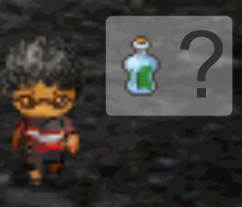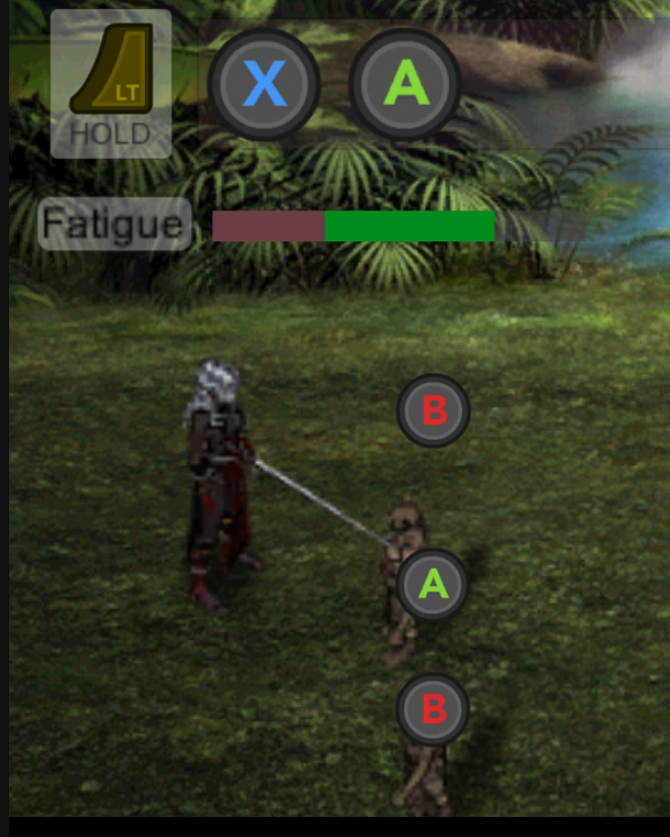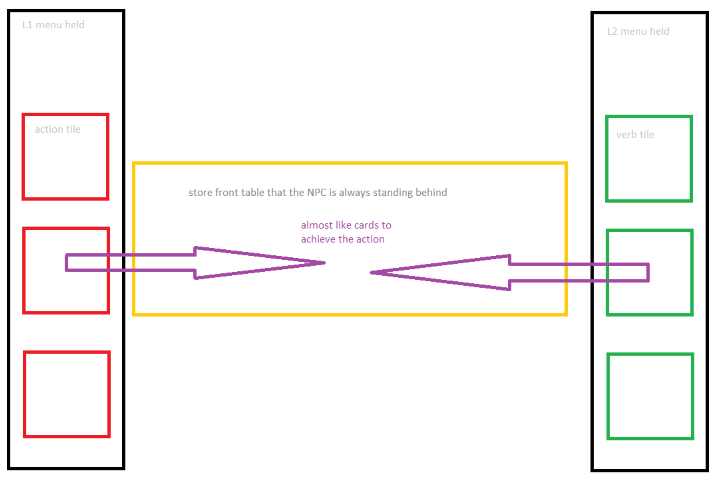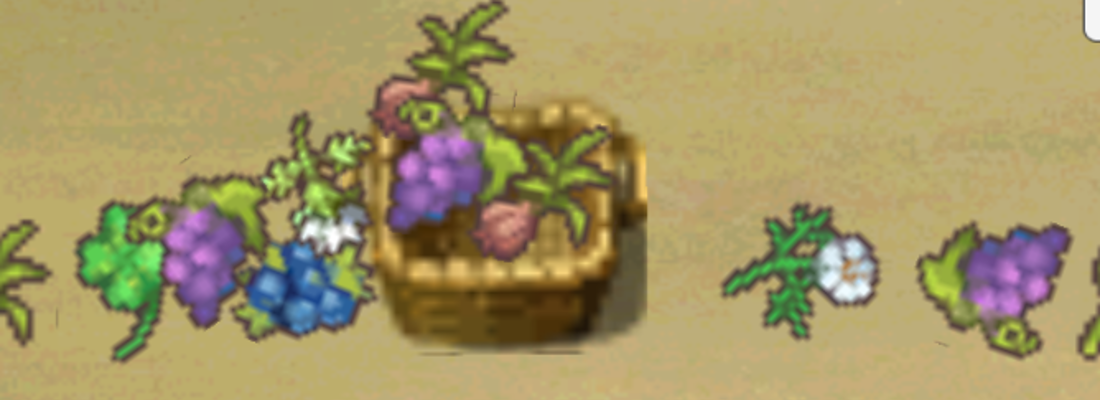Playable prototype available at: https://eastbayeff.itch.io/9to5
I started thinking about a "Final Fantasy" game where the player was in control of an "NPC" shop keeper. The economies in these games are notoriously static. This town has these merchants who have these items. The benefit was that you would discover new items, and presumably a new power level, when you found a new town. That's all fine because shops were never the focus of those games... in fact, they're vaguely irrelevant if you step back and think of how little the game design would change absent merchants. Solve the loss with drop rate adjustments and static item discoveries.
Anyways...
I'm basically an NPC merchant in the real world, so why not start with that premise.
I have to sling service in order to make money in order to buy survival. That's the American Game loop for most of us. But it's a pretty meager loop. My life has been punctuated with breaks to places like Granada, London, Heidelberg, Montepulciano, Cancun... the point is, the grind has been able to afford adventures out of the loop. So, in reality, my gravity might have two experiences in orbit: a tight grind loop, and an exciting adventure loop. This duality sounded like it could be the core loop for a game.

I figured that the tight loop had to be the "earning a living" of the shop keeper. This meant having some initial capital from which to leverage into profit. With starting resources, a player could just "click up" enough currency to buy a ticket to the adventure game mode. Because you really don't know what someone will want when they arrive in a shop, I put a little random shopper who showed up on a clock. I figured that instead of just having the shopper buy something you price, it would be more of a barter system. They'd arrive wanting to trade for something, and if you had that something, they would be willing to offer up their raw materials. The balance was skewed to almost always ensure a profitable exchange for the player.
This design could be further expanded by having "rare shoppers" with "rare materials" or have non-player characters representing the "PC" adventurer, who would show up and dump huge amounts of valuable stuff in exchange for whatever rare items you had. I pictured a barrel in the back of the shop, and every time you bought a shopper's basic potion, the animation would uncork it, pour the contents into the barrel, and toss the empty vial to the dishwashing sink. Presumably you could distill the contents into new potions, inviting a whiskey-making minigame to expand my scope even further.

An "adventure" was going to be the bread and butter of the game. The shop could always expand, just like any clicker-style game can. I pictured the "go on an adventure" button would bring up the JRPG world map, with the shop keeper's town as the center. The further out you would venture, the "higher level" the monsters would be -- and of course, the better the raw material loot. This is all expected RPG trope. I hadn't yet really figured out the end-game, but hey this is a 2-week project...!
For my purposes, the implementation of an adventure was to add a mechanic that required active player participation, since the store was so passive. Players were basically shuffling inventory around, bundling items, and sometimes just plain waiting for a shopper to (randomly) ask for something they had for sale. It needed work.
So while on adventure, the player has to hit various mobs as they enter range. Successful strike is pressing the correct button above the monster's head. Like a QTE, you know...

Failure to hit the button within the time meant you got hit. Simple enough
But I wanted to get away from the numerology and excel worship that is typically present in JRPGs. So I tried to obfuscate health as basically a measurement of player capability. A player action would use fatigue, and an injured player would lose their maximum fatigue capacity. In other words, if you took a bunch of hits, you couldn't do a lot of actions. This meant you could be relatively capable of fighting off lots of monsters early, but if you don't pace yourself, you can end up taking more damage later. The road to player defeat was exponential for this reason. It played right and felt good.
It also meant that players who button-mashed were penalized. Like they should be.
I also envisioned an input schema that could become more interesting. So in real time, if a player hit the corresponding button, the enemy would get struck. If the player held the L1 button on the joystick, the game speed would slow down and fatigue would slowly accumulate as focus is used. During this slow-down, the player could input a code (X X Y Y A, etc.) and then let go. The game would parse the input, and different special attacks would fire off. Like, do 1 damage to all monsters on the screen for 60% fatigue burst. It would be up to the player to discover what the secret inputs were.
When Moonlighter was released about 6 months later, I was quite happy to see that some of my high concepts could be polished and implemented to success
Original design journal notes:
Events:
Robbery
Rare item (aware)
Rare item (unaware)
Solicitor (traveling vendor, unique capital investment opportunity / scam)
Mechanics:
Buy
Sell
Barter (Fallout)
Tradesman work: smelting, combining, crafting concepts
Capital investment (work materials, marketing)
Skills investment
Personal harvest (??)
= turn based RPG, secret of mana RPG?
"human touches"
You have a welcome script. Could get interrupted by impatient adventurer
= focus on the saying hello, how are you, let me know if I can help
Killing kobolds makes you sad?
Controls:
left trigger / right trigger for respective menus
Left stick / right stick for respective selections
working with icon tiles, placed onto the center of the table
= verbs on left, nouns on right
= push button for combine to create action (if available)
Trying to be a "menu heavy game" without being menu heavy. JRPG is a menu based excel sheet simulator. How do we break that appearance while retaining some of the core features that the menus allow for. Focus on UX/UI over feature depth. Only do a few things, but do them well

Design focus:
Daily cycle -- the 9to5
Reintroduce the idea of Adventure. Getting ready for the "weekend"
Tents mean something
You're the business owner. Going away and keeping the shop closed creates problems. Bad "yelp" reviews? Affect the town economy?
Concept of "freshness" -- mana potions that lose effectiveness over time if they sit on the shelf. "Made to order" potions could create mini game possibility while store is open
Trying to get away from reductive economy:
Everything you earn is pared down to "gold" equivalent. There should be a type of currency that can be used like RL money, but the majority of exchanges should be barter
Epistemology… how do we know what to do with the things we come across? Recipe development. Ideas as exchange. The only shop that does this method.
You can't always get what you want
Underlying drive to want to go on an adventure but you can't because you're running the shop.
Betting on adventurer futures / pawn star?
Adventure:
one Adventure class includes various Encounter classes.
Each Encounter is structured as some type of JRPG "battle"
succeeding each event yields reward; failure results in penalty
Adventure length determined by difficulty
Adventure type = cosmetic theme (underground, plains, forest, etc.)
Travel time?
Special Encounters
(The idea is that the player should have to bring along enough gear to survive the adventure; there is no running away or "permadeath", but should have severe losses)
Encounter:
Encounter class includes:
name
Participant prefabs
WHERE IS THE FUN? WHAT IS ENTERTAINMENT?
"kill everything"? Attack plants which have "gory" explosions = harvest stuff.
Random encounter, but select the type at a given time. Going out with intention to harvest = random encounter for a plants. Going out with intention to raid a village handled differently (world map exploration, much more risky, etc)
Fights should be risky, exhaustive, resource intensive. High potion usage? -- use your stock to come out ahead. Skill based, rather than item based -- make the right decisions to maximize return on investment
How to manage fatigue without hitpoints. How to manage overcoming a fight without abusing an advantage
Automated economy?
"Lemonade stand"
Or interval based shipments? Expected deliveries, basic cash flow…
Or player stands at the shop waiting for customers. Can be doing things in menus when someone walks in "door chime" = waves of happenings?
